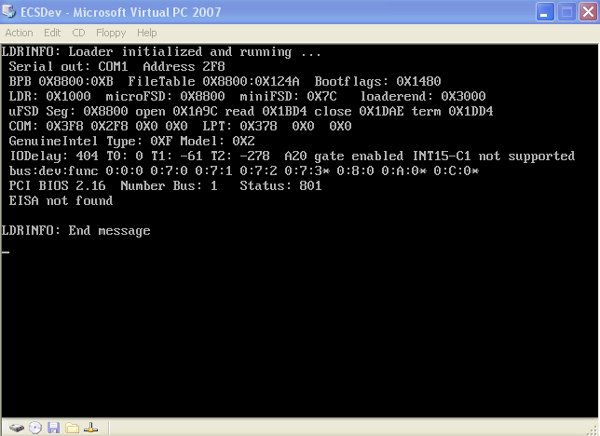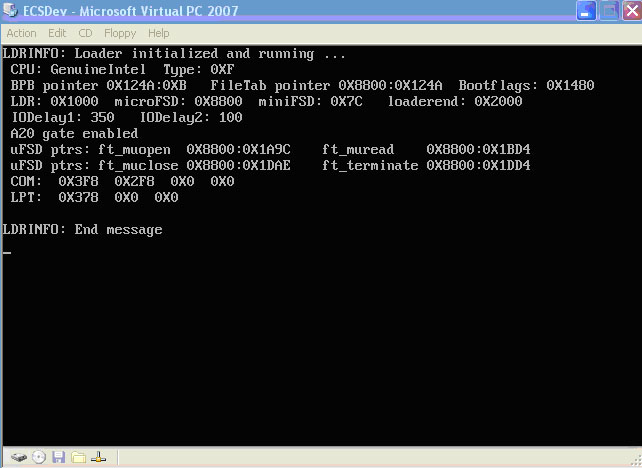Category: bootldr
oemboot
Ramblings about a tool I use for pulling information about my vdi dev image.
- Countinue Reading
- No Comments
vdi_ info
Ramblings about a tool I use for pulling information about my vdi dev image.
- Countinue Reading
- No Comments
ReactOS as a 32bit Open Watcom Dev Environment
I was having problems with the old Windows XP VM I use to compile Open Watcom (OW) boot projects. This VM is an image of my original XP Desktop install […]
- Countinue Reading
- 2 Comments
More output…
I finally hooked up output from the detected serial port using a DosHelp routine, but it might short lived if I can’t use it after relocation. Guess the best part […]
- Countinue Reading
- 2 Comments
DosHlp Routines
In brief, which is all I can do, the os2ldr contains some hardware dependent routines call DosHlp routines. Thanks to Pasha for pointing out that the ddk contains doshlp.inc which […]
- Countinue Reading
- No Comments
osFree…
I have joined the osFree Project at Sourceforge and will keep a mirror of my loader project there. In the process of hooking in the freeLdr micro-FSD calls, I found […]
- Countinue Reading
- 2 Comments

More and More…
- Countinue Reading
- No Comments

Waste of more time…
Simple? Sure, but better than nothing. Screen capture booting with a Virtual PC drive formated with Bootable JFS: Big hang up is that the IODelay isn’t coming up constant.
- Countinue Reading
- No Comments
My os2ldr project
I have had sometime to play and committed the results to the SVN page: http://www.assembla.com/wiki/show/os2ldr
- Countinue Reading
- No Comments
JFS BIOS-parameter-block
I think I have the JFS BIOS-parameter-block complete and making sense. A bit late but a fair article: eComStation: Not for Everyone also: multiboot-pc-for-freedos-linux-and-ecomstation Also, non-related, the Phoenix landing yesterday
- Countinue Reading
- No Comments